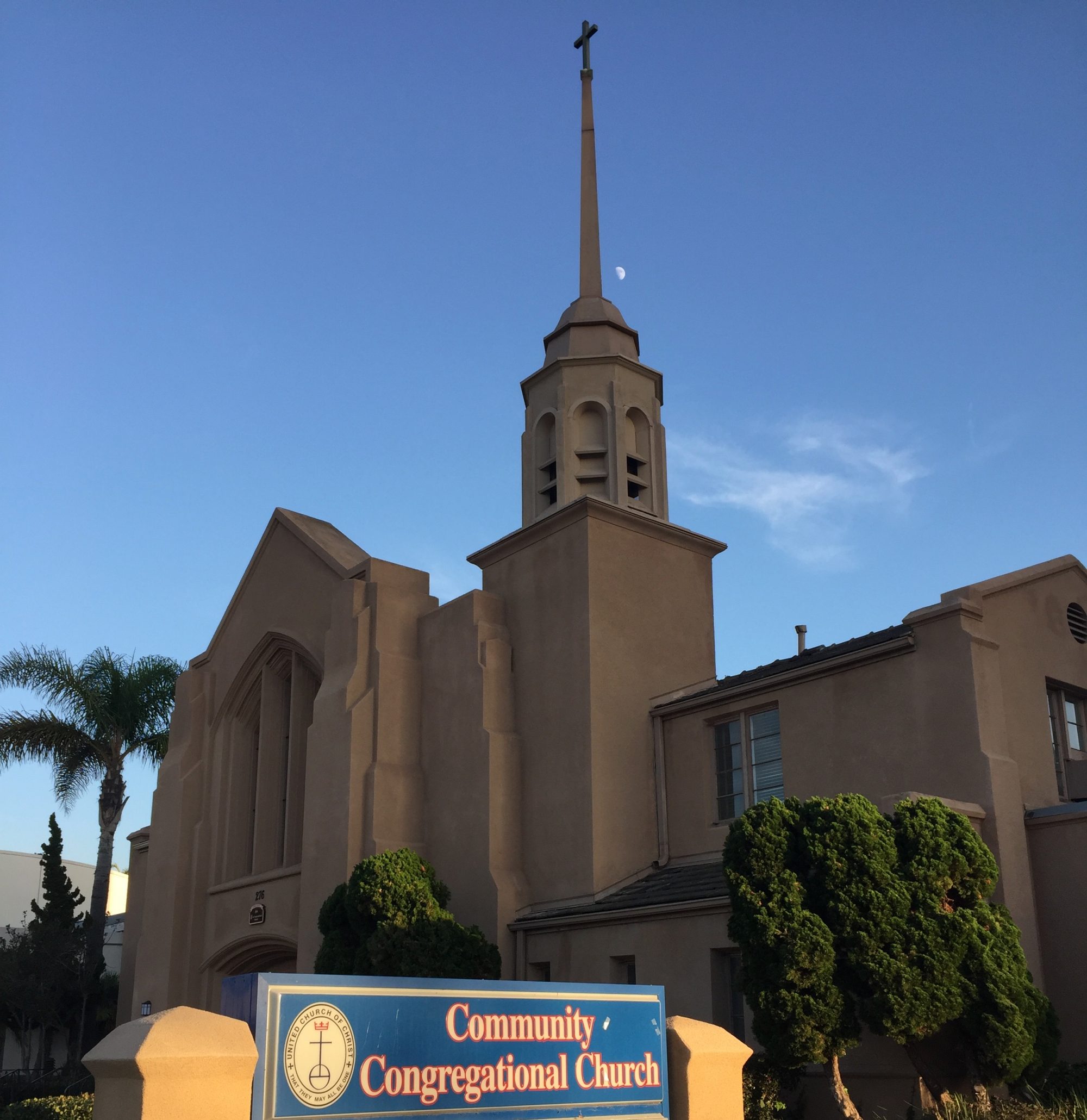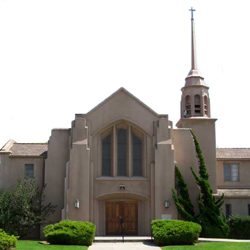“Praying on Your Path”
A meditation about Walking Prayer based on Psalm 25
February 18, 2018
Community Congregational Church of Chula Vista
Dr. Sharon R. Graff
* * * * *
The book of psalms is the Bible’s songbook, and it is also the Bible’s prayer book. A full 150 prayers make up the psalms, and each one is an honest, forthright, sometimes even blunt presentation of the person’s real feelings, without filter. At one point, the person praying is up and optimistic, at another, down and ready to die. At another point, the one praying commends God for being present to all and for all, and gushes about God’s love…and in the next prayer, calls on God to murder their enemies. Spend a few minutes sometime, just thumbing through the psalms, and you’ll see such a wide span of human emotion.
So, you can imagine, there is little consistency in this book of prayers, except that the one doing the praying is brutally honest in his or her outlook, and consequently, also raw and open about what he or she expects and wants God to do. That honesty in prayer is consistent throughout the 150 psalms, and that, friends, is why I’ve chosen for us to dive into them during this season of Lent.
Lent is, by nature, a more reflective 6 weeks in the church year. A time when we prepare ourselves for the celebration of the return of life that comes with Easter’s empty tomb. For these next six weeks, we are invited to take a bit of a pause, not from our regular lives, but a pause that refreshes our spirits. The pause I’m inviting you into is one of prayer. Each week, in worship, using a particular psalm as our guide, I’ll teach you a form of prayer that you can use in the coming week. And so, together, our prayers throughout Lent can be both a learning and a way to deepen our relationship with the Divine. A pause, if you will, that hopefully refreshes you!
Today, we learn a form of prayer that comes right out of the psalm we read earlier…Psalm 25. Look at it again in the back of the black hymnal, page 635. This particular prayer of the psalmist is motivated by shame—you can see that in the first few verses. He or she has been shamed, yet trusts in God, and wants his or her enemies to feel the same level of pain and shame. In other words, “God, get on it! Shame them for me!” That’s not the prayer we’ll practice! That’s just the psalmist’s motivation.
The prayer that wraps itself around this particular life situation is a prayer that seeks God’s pathways, and acknowledges that these pathways of God intertwine with our own. Look at verse 4. The psalmist prays, “Make me to know your ways, teach me your paths…” And for the next several verses, we hear the psalmist’s deep faith that God is a God of gentle guidance, God is a God of loving forgiveness, God is a God who teaches, and who leads, and who guides, no matter how many times you stray or how far off the path you go. God is a God who has a short memory for your sins, and whose steadfast love for you is forever. This the psalmist knows, and this the psalmist prays.
Toward the end of the prayer, in verses 9 and 10, the psalmist returns to the metaphor of pathway, claiming once again that God leads and God’s paths are all of steadfast love and faithfulness. Now hear this. This part of the prayer is talking about God, not you, not the psalmist. God is steadfast love…always… God is faithful…always… We tend to put an “if-then” sort of disclaimer on God’s love, by combining with God’s love the psalmist’s own fears that are confessed in the last line. The psalmist prays there, “All the paths of God are steadfast love and faithfulness, for those who keep God’s covenant and God’s decrees…” Really? God’s love is not determined by whether or not we do the right thing. We don’t control God’s love or God’s faithfulness. God is always loving. God is always faithful. Verse after verse and story after story confirm that truth. Our behavior—good or bad—doesn’t either earn us points in the bank of God’s love and favor, nor does it detract from God’s love for us. So that last line, it seems to me, is the psalmist returning to his or her motivation for the prayer in the first place…and that is the motivation of shame.
The psalmist wants God’s love to be controlled by human behavior, precisely so that he or she can feel it and the enemies cannot. That’s part of being human…to want vengeance and to want God on our side…especially when we’re hurting. Apart from this shame that motivates the psalmist in the first place, we see in this psalm prayer the unfolding of a pathway. Really, it’s two pathways: our and God’s. And this metaphor of pathway provides the space for our first prayer teaching.
This form of prayer is called walking prayer. In some traditions, it is called walking meditation. I first learned it in a Christian context, and then the teaching deepened for me through a Buddhist teacher called Thich Nhat Hanh. Walking prayer is, as its name suggests…a prayer we repeat while walking. It’s a prayer we create…of just a few words…or it can be one word that repeats as a kind of mantra. I find it easiest to begin walking prayer by planting my feet firmly on the ground or the sidewalk. Taking a deep breath. Closing my eyes and letting my mind wander a bit. Then I try to notice what images are surfacing. Is it something from work? Or home? Or a relationship with a friend? Or is it something deeper in…a change in perspective, perhaps? Or a wrong that needs righting? Is it some leftover morsel of guilt or shame or remorse that needs attending? Whatever surfaces as I stand there planted is what I work with in that particular walking prayer.
And then, when I’ve settled on my focus for the walking prayer, I take another moment to form the actual prayer. It’s never more than a few words, and usually only one word. For example, if I’ve wronged someone, the one word that becomes my walking prayer might be “forgive…” If a scene from work or life or friendships emerges for focus, I might settle on a walking prayer of “Please help me, show me a way forward…” Then I begin walking. And as I take each step, I repeat a part of that prayer. It becomes a pattern—walking, praying, walking, praying. And, usually, after a few minutes, a comfortable pattern emerges. Sometimes that word or words adjust to something new or different. I keep going for as long as seems helpful. I’m very goal oriented, so my goal might be to walk and pray for 20 minutes…or to walk and pray for five blocks…or to walk and pray from my desk to the church kitchen… What I find, when I’m practicing this walking prayer, is that my pace slows, and my mind clears, and I feel refreshed at the end of it, no matter how long the prayer ends up being.
Years ago, I was teaching walking prayer and there was a very wise person in a wheelchair in the group. She lit up as she said, “Oh, I do the same kind of praying…but with cycles of the wheel, rather than steps.” She was delighted, as I recall, to have a name for what she had developed for her own pathway! And I believe she called it “wheeling walking prayer.”
Vietnamese Buddhist monk Thich Nhat Hanh teaches about walking meditation in his book, Peace Is Every Step. And he takes it several steps further. Not only is this type of prayerful walking helpful to you, as an individual, but he claims, it actually helps the larger circles of humanity as well. Listen to what he says, as he urges us to acknowledge each day the brand new gift of twenty-four hours.
“We have the capacity to live in a way that these twenty-four hours will bring peace, joy, and happiness to ourselves and others,” he writes. “Peace is present right here and now, in ourselves and in everything we do and see. The question is whether or not we are in touch with it. We don’t have to travel far away to enjoy the blue sky. We don’t have to leave our city or even our neighborhood to enjoy the eyes of a beautiful child. Even the air we breathe can be a source of joy…We can smile, breathe, walk, and eat our meals in a way that allows us to be in touch with the abundance of happiness that is available. We are very good at preparing to live,” writes this Buddhist monk, “but not very good at living. We know how to sacrifice ten years for a diploma, and we are willing to work very hard to get a job, a car, a house, and so on. But we have difficulty remembering that we are alive in [this] present moment, the only moment there is for us to be alive. Every breath we take, every step we make, can be filled with peace, joy, and serenity. We need only be awake, alive in the present moment…Peace is every step…”
Sounds very much like the person who wrote Psalm 25…we are on a pathway, each one of us, each day we are alive. God is on that pathway with us. We can’t stay in our rooms, or remain wandering in some wilderness, but we are invited to set out on the paths of God. Frederick Buechner writes, “If you want to know who you are, watch your feet. Because where your feet take you, that is who you are.” And, my sisters and brothers, when we slow our pace, when we allow ourselves a few moments of mindful prayer as we walk, the wisdom and pathways of God come to us, and through us, to the world we live in. And so I invite you—no, I challenge you (I double-dog-dare you!)—to bring peace and joy, harmony and comfort—to our hurting world this week, by taking a few mindfully praying steps on your own journey.
Amen and Blessed Be!

